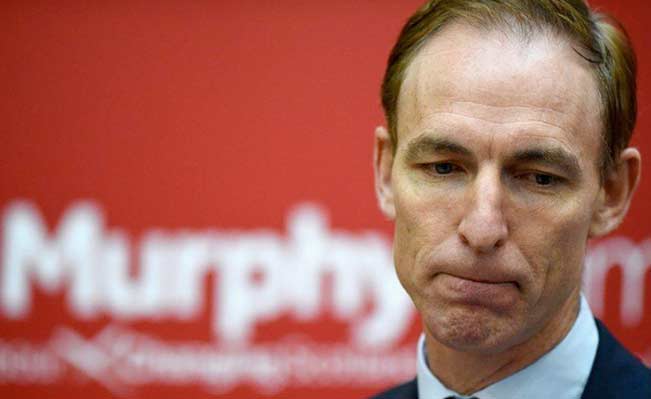
The SNP landslide has shown a glimpse of what ordinary people can do when they realise their own power. Now, the social movement must hold them to account for their promises
Last Thursday, it finally dawned on the remaining majority of Labour activists that they had lost all credibility as Scotland’s social democratic party. After years of complacently assuming that anti-Tory anger would guarantee their re-election every term in Westminster, if not Holyrood, this realisation stunned the British media- not to mention the new army of unemployed Labour MPs. Some of those MPs, of course, understood that this was not an overnight phenomenon: Labour’s isolation from its core supporters and traditional base has been growing for decades, while they increasingly ignored warnings from the trade union movement. This collapse was inevitable, and the Better Together debacle merely gave voters the final incentive they needed to ditch them forever.
Ed Miliband, for all his faults, gave Labour activists a temporary burst of genuine purpose: a few decent policies to campaign around, and a little hope for a “lighter” austerity. But he never broke from New Labour’s core ideas, and thus the reversion to 1990s Blairite nostalgia among Chukka Umunna and his leadership rivals was, in the long-run, unavoidable. New Labour is now the party’s default ideology, its standard response to “the middle England problem”.
Blair viciously transformed Labour, recasting it around the holy triumvirate of privatisation, financialisation, and deregulation, cutting its last links to the working poor, proudly declaring that we were “all middle class now”. By contrast Miliband tiptoed around New Labour, never setting out alternatives to any of this, gently snubbing Blairism rather than killing it off, barely even apologising for Iraq.
Ironically, Miliband’s one decisive break with New Labour was over public spending. He conceded, far too readily, that Brown’s lavish spending on such flippant luxuries as schools and hospitals was the cause of the 2008 crash. Miliband’s retorts to these accusations lacked both guile and principle; and these mealy-mouthed platitudes, rather than Scottish nationalism, cost him his election.
Labour’s problems are by no means unique. Most traditional centre-left parties made their pacts with the neoliberal devil in earlier decades, and as with New Labour, selling out to world markets seemed to help social democrats get elected as long as the finance-led boom continued. But come 2008, Labour and their sister organisations had no answers. Across Europe, the centre-left has tailed the neoliberal right, attacking their own supporters with brutal austerity measures, while not-too-subtly shifting the blame onto migration. The result is a Europe-wide legitimacy crisis.
In many countries, the beneficiaries are the radical right. And indeed, Britain seemed to follow this pattern for many years, as shown by UKIP’s stunning results in the European Parliament. While UKIP has fallen back, xenophobic parties are still growing in many other countries, largely at the expense of the centre-left. By contrast, in Spain and Greece, and arguably also in Scotland, radical left movements have occupied space traditionally held by barren social democratic parties.
Of course, I have reservations about categorising the SNP with Syriza and Podemos. Although all achieved success on the back of similar movements, the political nature of these parties is highly distinct. While Syriza and Podemos do use modernising language, they are still essentially rooted in radical left traditions: I cannot imagine they would voluntarily adopt a policy of cutting business taxes or arming the police, for instance. They also emerged from countries experiencing much harsher austerity, and much heavier state repression, with the spectre of fascism still haunting them. Nonetheless, the SNP has undoubtedly occupied similar anti-austerity space, spurred by a broad movement that had geographical roots in traditional bastions of Labour social democracy, rather than Tartan Toryism. The comparisons are not simple, especially given the SNP’s highly centralised internal structures, but they are plausible.
Three lessons follow from this. First, voters will punish centre-left parties that sold their principles to multinational corporations. Second, a well-positioned and plausible radical left can take advantage of this, given the right conditions. But third, there are no guarantees: social democracy’s legitimacy problems can equally benefit the radical right. And so we must act.
Labour made half-hearted concessions to their traditions under Miliband. That short era is now over, with all leadership candidates offering a similar “aspirational” message, combined with mandatory homilies to the “emotions” of the nation, by which they mean Britain of course. Scottish Labour had already sought to reconnect with the nation’s emotions by plumping for the “very aspirational” figure of Jim Murphy.
The grinding inevitability of a return to New Labour only highlights the significance of what we’ve achieved in Scotland. We’ve shown the absolute nonsense of their central notion that “Red Ed went too far”. Scottish voters are not fundamentally different from their English counterparts. The difference is that we’ve got used to countering the politics of fear, after an unprecedented scare campaign to destroy a mass democratic movement. Having been rewarded for our perceived obedience with arguably the most extreme Tory government in history, I think Scotland wouldn’t look twice at a second chance to get rid of Westminster. Standing up to Project Fear has become a matter of pride, as well as principle.
The SNP landslide has shown a glimpse of what ordinary people can do when they realise their own power. Now, the social movement must hold them to account for their promises.
Our next step must be to build a second force in Scottish politics, to ensure that the SNP is not “the left” of Scottish society. A diverse Scottish Parliament, with a pro-independence consensus, will ensure that there’s no return to the horrors of the feeble fifty.

